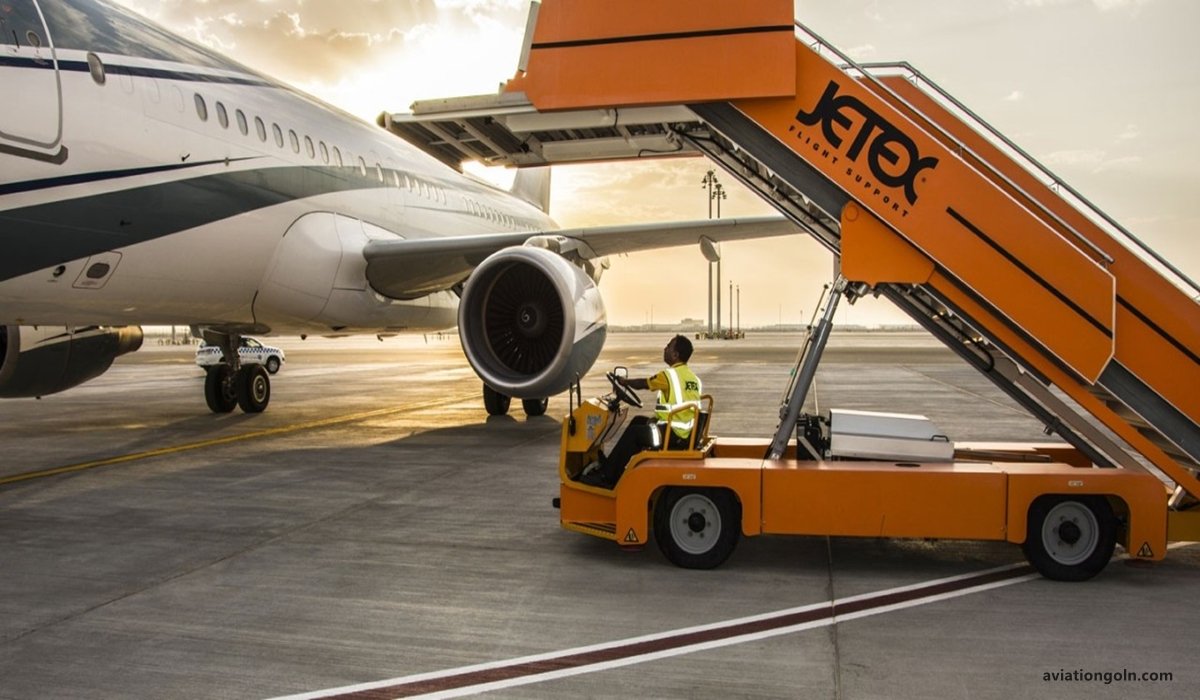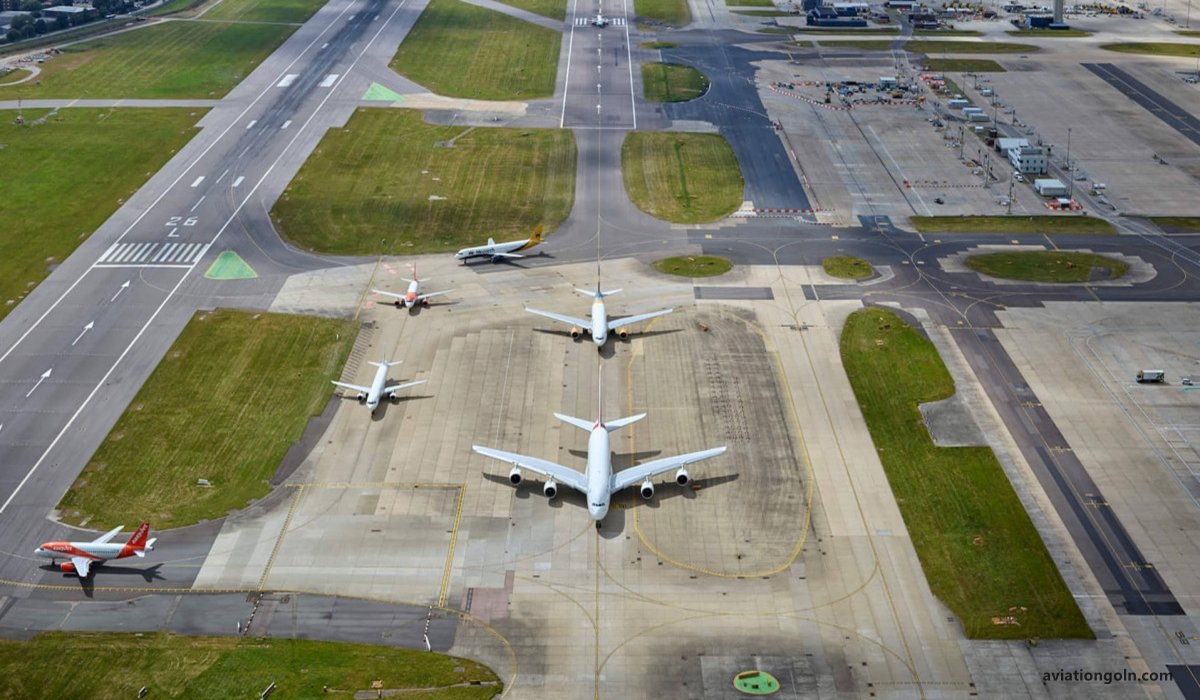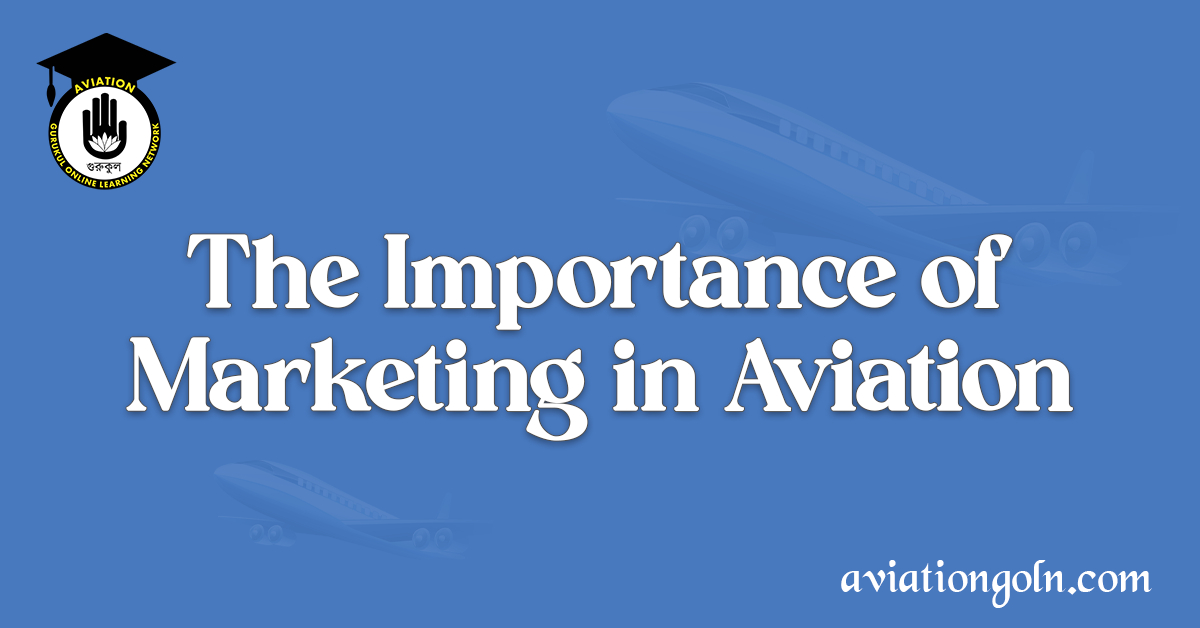The Importance of Marketing in Aviation: When one thinks of aviation, they might think of airlines, aircraft, pilots, and the romantic notion of flight. However, like every other industry, aviation too requires a strong marketing strategy to succeed in today’s competitive marketplace. The aviation sector encompasses a range of services and products, from commercial airlines to private jet charters, aircraft manufacturers to maintenance providers, and many more. Marketing plays a pivotal role in ensuring these businesses soar above the competition and continue to prosper. In this article, we will delve into the importance of marketing in aviation and its various facets.
The Importance of Marketing in Aviation

1. Creating Brand Awareness
The aviation industry is saturated with competitors. For a new airline or service provider to establish itself, brand recognition is crucial. Marketing efforts, be it through traditional media like TV and print or newer mediums like social media, help put the brand in front of potential customers. A memorable brand image and name can go a long way in ensuring consumers remember the airline when making travel plans.

2. Differentiation in a Competitive Marketplace
Given that many airlines offer similar routes and aircraft, differentiation becomes crucial. Marketing is the medium through which airlines can convey their unique selling points, whether it’s superior in-flight service, better loyalty programs, or more destinations. An effective marketing strategy helps position an airline or service uniquely in the minds of potential customers, giving them a reason to choose one brand over another.

3. Yield Management and Pricing
The aviation industry relies heavily on yield management, a strategy where prices are adjusted based on demand predictions. Marketing plays a critical role in communicating special offers, discounts, and promotions. Timely advertisements can help airlines fill up seats during low-demand periods, maximizing profitability.

4. Building Loyalty and Trust
For airlines, repeat customers are incredibly valuable. Building a sense of trust and loyalty ensures that once a passenger flies with an airline, they choose the same airline again in the future. Through consistent and honest marketing campaigns, airlines can foster a relationship with their customers, creating a sense of brand loyalty.

5. Expanding into New Markets
As airlines grow and seek to expand their routes and services, marketing becomes essential. Entering a new market or launching a new route requires significant marketing efforts to make potential customers aware of these new services. Through marketing research, airlines can also gauge the demand and preferences in these new markets, tailoring their services accordingly.

6. Highlighting Technological Advancements
The aviation industry is one of rapid technological advancements. Whether it’s new, more fuel-efficient aircraft, innovative in-flight entertainment systems, or advanced safety features, airlines need to communicate these upgrades to their passengers. Marketing allows airlines to showcase their investment in technology, potentially attracting more tech-savvy travelers.

7. Crisis Management and Public Relations
The aviation industry, due to its high visibility, can sometimes be prone to public relations crises. Whether it’s a delay due to technical issues, a mishandled baggage claim, or worse, a major accident, how an airline communicates during these times can make or break its reputation. Marketing and PR teams play an essential role in managing these situations, ensuring that the airline’s side of the story is heard and that there’s a plan in place to regain public trust.

8. Collaborative Partnerships and Co-Branding

Airlines often engage in partnerships with other businesses, such as hotels, car rental companies, or even other airlines. Marketing these partnerships ensures that customers are aware of the added value they receive. Co-branded credit cards or loyalty programs are excellent examples where marketing plays a significant role in attracting users.

9. Sustainability Initiatives
With growing concerns about climate change, many airlines are taking steps towards more sustainable operations, whether through the adoption of biofuels, newer and more efficient aircraft, or carbon offset programs. Marketing these initiatives can attract environmentally-conscious travelers who prefer to fly with airlines that share their values.

10. Feedback and Customer Engagement
Lastly, marketing isn’t just about broadcasting a message—it’s also about listening. Modern marketing tools, especially digital platforms, allow for two-way communication between airlines and their customers. Feedback gathered through these channels can be invaluable for service improvements and ensuring that the airline’s offerings align with customer preferences.

In a high-stakes industry like aviation, where margins can be thin and competition is fierce, marketing is not just beneficial—it’s essential. It provides airlines and aviation-related businesses with the tools they need to differentiate themselves, communicate value, and forge strong relationships with their customer base. Whether it’s through traditional advertising, digital campaigns, PR efforts, or partnerships, a well-executed marketing strategy can be the wind beneath an airline’s wings, propelling it to new heights.
